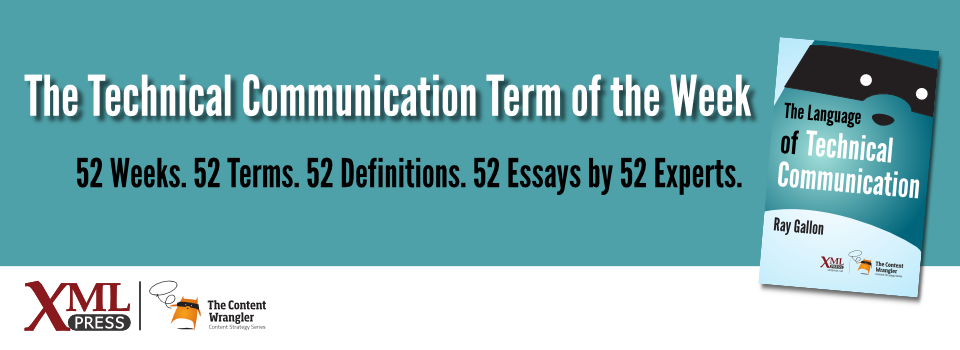What is it?
Content that is modular, structured, reusable, format-free, and semantically rich and, as a consequence, discoverable, reconfigurable, and adaptable.
Why is it important?
Intelligent content enables organizations to rapidly adapt their content to the changing needs of their customers and the devices they use.
Why does a technical communicator need to know this?
In today’s multichannel environment, we have to move away from the artisanal creation of content to a manufacturing model in which consistently structured, reusable components can be assembled into a variety of deliverables. Getting the correct content to the right customer in the right context and on the device of their choosing requires intelligent content.
An intelligent content strategy establishes a coherent plan under which content can be designed, developed, and delivered to achieve maximum benefit to the customer and organization while minimizing costs. It provides measurable ROI through better use of finite resources, reduced costs at every phase of content development, increased quality, and unlimited device delivery.
Intelligent content is supported by:
- Content models: define the structure of content components and assemblies, formalized in templates, forms, and markup languages like XML. This format-free, style-less content can be automatically displayed, filtered, or layered to optimize display on a target device with little or no human intervention. Writing guidelines help authors write consistently structured content.
- A reuse strategy: identifies what types of content will be reused, the level of granularity, how content will be reused, and how to automatically assemble reusable content. With modular, reusable content, you can change the order of components, include or exclude components, and reuse components to build entirely new types of content to meet new needs.
- A taxonomy strategy: defines how to store and retrieve your content based on a common vocabulary (metadata). Using metadata, you can retrieve the pieces of content you need to automatically build customized information sets.

